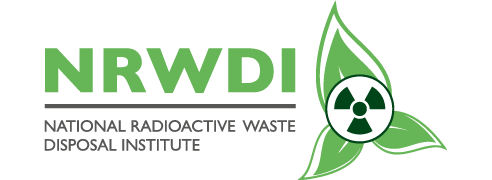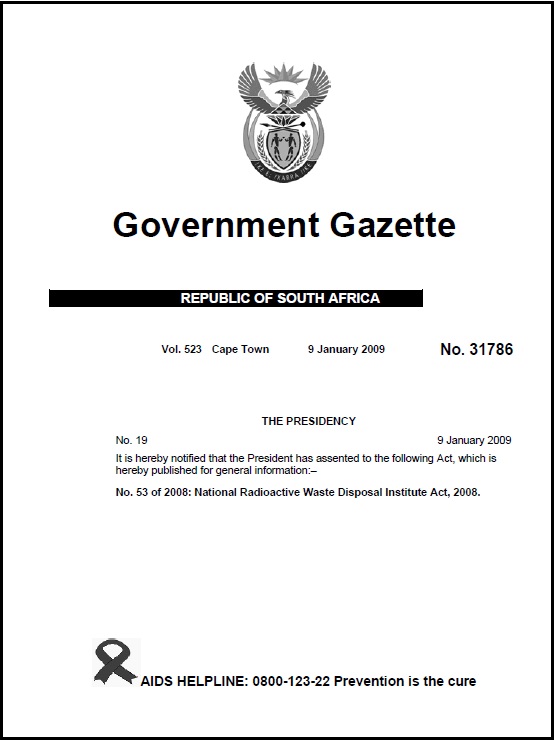REGULATING THE INSTITUTE
Acts
The South African legislative framework for radioactive waste management derives from South African policies and Acts of Parliament and international legal instruments promulgated under the auspices of the International Atomic Energy Agency (IAEA). Radioactive waste is transported by road to Vaalputs in metal containers and concrete containers. Transportation is carried out in terms of the safety and security measures prescribed by the International Atomic Energy Agency (IAEA) transport regulations.
Joint Convention obligations
South Africa acceded and became a contracting party to the Joint Convention on 13 February 2007.
Transport vehicles are subject to constant surveillance by means of satellite tracking systems and need to adhere to strict transportation schedules. The foremost applicable international legal instrument regulating radioactive waste management is the Joint Convention on the Safety of Spent Nuclear Fuel Management and Safety of Radioactive Waste Management of 1997 (Joint Convention) and the relevant national policy on radioactive waste management is the Radioactive Waste Management Policy and Strategy for the Republic of South Africa of 2005. In fulfilment of the Joint Convention obligations, and giving effect to the Radioactive Waste Management Policy, South Africa promulgated the National Radioactive Waste Disposal Institute Act, 2008 (Act No. 53 of 2008) (the Institute Act) which became operational on 1 December 2009.
Section 3 of the Institute Act establishes the National Radioactive Waste Disposal Institute (the Institute) as a juristic person. The purpose of the Institute is to manage radioactive waste disposal on a national basis.

